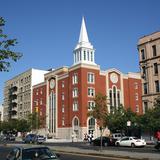
Bureau of Economic and Business Affairs.Under Secretary for Economic Growth, Energy, and the Environment.Economic Growth, Energy, and Environment.Office to Monitor and Combat Trafficking in Persons.Office of the Special Envoy To Monitor and Combat Antisemitism.Office of International Religious Freedom.Bureau of Population, Refugees, and Migration.


Civilian Security, Democracy, and Human Rights.Bureau of International Security and Nonproliferation.
FREEDOME FROM RELIGION VERIFICATION
Bureau of Arms Control, Verification and Compliance.Under Secretary for Arms Control and International Security.Arms Control and International Security.Office of Small and Disadvantaged Business Utilization.Deputy Secretary of State for Management and Resources.Bureau of Cyberspace and Digital Policy.Security Coordinator for Israel and the Palestinian Authority Special Representative for Syria Engagement.Special Presidential Envoy for Hostage Affairs.Special Presidential Coordinator for the Partnership for Global Infrastructure and Investment Global AIDS Coordinator and Global Health Diplomacy

FREEDOME FROM RELIGION DOWNLOAD
Download the publication for more examples and legal case studies that show how human rights work in practice. (Case summary taken from Human rights, human lives: a guide to the Human Rights Act for public authorities. The House of Lords concluded that the vulnerability of children made the legislation necessary and that the statutory ban on corporal punishment in schools pursued a legitimate aim and was proportionate. The House of Lords rejected the case because the parents’ rights under Article 9 were restricted by the need to protect children from the harmful effects that corporal punishment might cause – a punishment that involves deliberately inflicting physical violence. They believed that part of the duty of education in the Christian context was for teachers to assume the parental role and administer physical punishment to misbehaving children.

Example case - R (Williamson and others) v Secretary of State for Education and Employment and others Ī group of parents and teachers tried unsuccessfully to use Article 9 to overturn the ban on corporal punishment of children in schools. Freedom to manifest one’s religion or beliefs shall be subject only to such limitations as are prescribed by law and are necessary in a democratic society in the interests of public safety, for the protection of public order, health or morals, or for the protection of the rights and freedoms of others. Everyone has the right to freedom of thought, conscience and religion this right includes freedom to change his religion or belief and freedom, either alone or in community with others and in public or private, to manifest his religion or belief, in worship, teaching practice and observance.Ģ. Article 9: Freedom of thought, conscience and religionġ. This text is taken directly from the Human Rights Act.


 0 kommentar(er)
0 kommentar(er)
